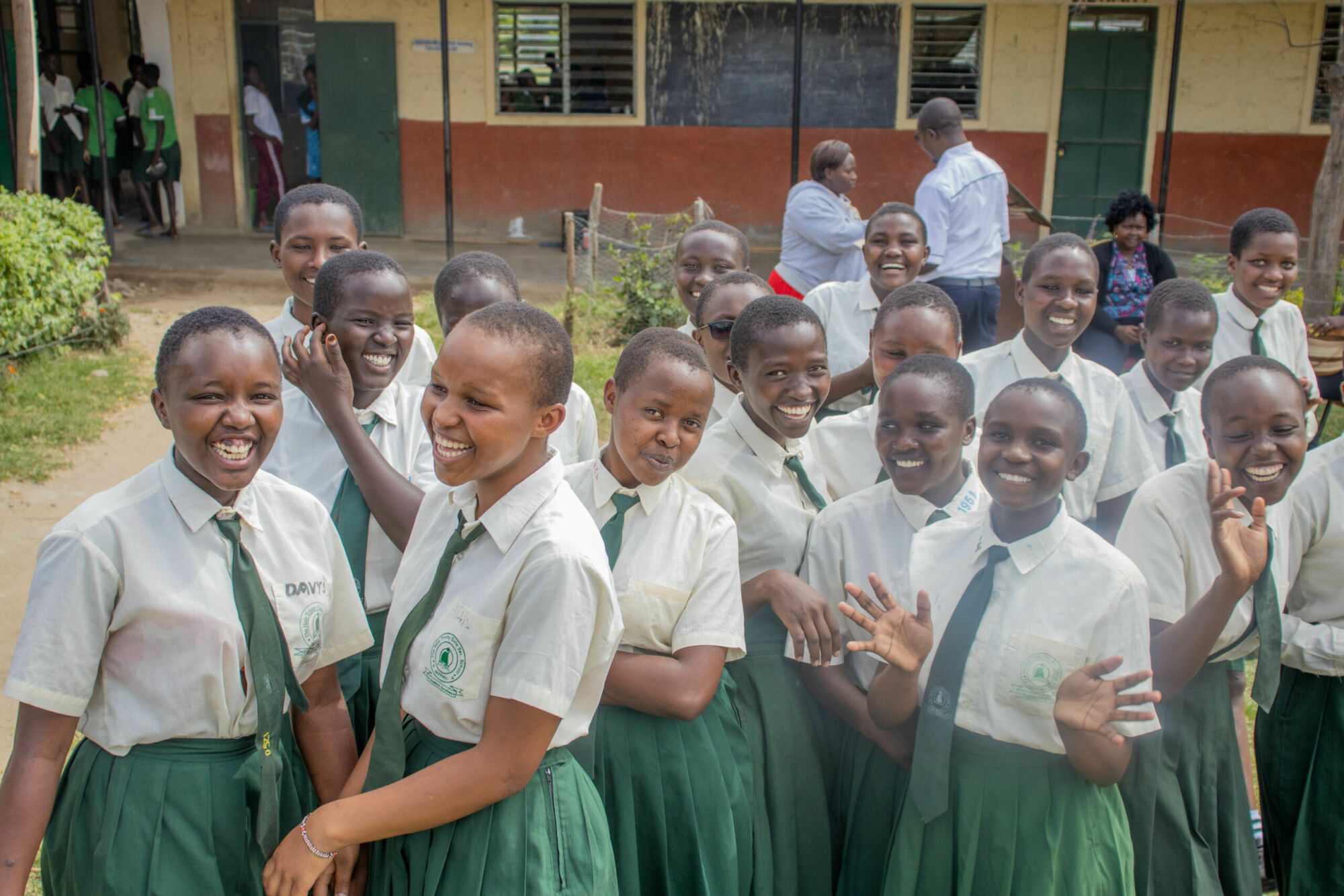In conflict-ridden region of West Pokot, Kenya, Vi Agroforestry is working in partnership with the Kenyan Scouts Association (KSA) to improve the lives of vulnerable children. The aim is that children will be motivated to stay in/come back to school thanks to feeling safe there, accessing water more easily, eating nutritious lunches, and learning about their rights, leadership skills, climate smart gardening and peace building. Fewer students will get involved in truancy, be recruited to violent groups, or be married and/or pregnant (and thus quit school) while still in school age.
The project focuses on girls and boys aged 10-17, many of whom face significant challenges in completing their education due to insecurity, poverty, and harmful cultural practices such as child marriage, female genital mutilation (FMG) and early pregnancies.
By promoting sustainable agriculture, the project helps schools grow nutritious crops in school gardens, providing students with vital school lunches that enhance their ability to learn and thrive. These gardens not only provide food but also teach children essential skills in farming techniques, empowering them to support their families and communities in dealing with droughts and food shortages.

In addition to addressing food and nutrition security, the project engages students in activities that strengthen their self-esteem and leadership skills. It also works to build peaceful communities by addressing local conflicts, particularly around access to water, and by challenging harmful norms around female genital mutilation, child marriage, and teenage pregnancies.
Project facts
The Creating a Thriving Haven for Children in Conflict-Affected West Pokot project runs from March 2024 to February 2026, funded by the Swedish Radiohjälpen Foundation under the fundraising campaign Children of the World (Världens Barn).
It is coordinated from Vi Agroforestry and implemented by our national partner KSA in nine schools in West Pokot, on the Kenyan border to Uganda, aiming to reach over 4000 school children.
The five main activities in this project are:
- Ensuring all schools have stable access to water, also in the dry season, by drilling boreholes with solar powered pumps near those schools who are in most need of water sources.
- Supplementing the small, very basic portions of rice and beans or ugali and cabbage served in schools with nutritious tomatoes, onions, cabbages, passion fruits, maize, kales, pawpaw, cassava and sweet potato from school gardens established and managed through the project.
- In playful ways, teaching school children valuable gardening skills, including how to grow food crops with minimal water during dry seasons and droughts.
- Engaging children in leisure activities to promote peaceful co-existence with neighboring communities and safeguard children from engaging in conflicts over cattle and other resources.
- Sensitizing parents, teachers and other significant adults in the children’s lives to strengthen the rights of the child, ensure children stay in/return to school, and challenge social norms and harmful practices of FMG, early marriages and early pregnancies.
